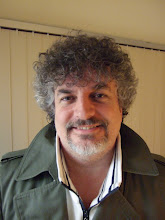Friday, May 18, 2007
Computers Translating Languages

I caught the flu this week so I've been watching a ton of TV. For some reason, when I'm sick, I can't read, it makes me dizzy.
I watched an old movie called "Desk Set" with Katharine Hepburn and Spencer Tracy this afternoon. Tracy plays possibly the first computer geek ever represented on the silver screen. He is an "efficiency expert" (..but please call me a methods engineer, that other term is so outdated...) who is going to bring in a new computer system into a research department staffed by four highly efficient female researchers.
He begins to brag about his new computer, called the Eminac, I think, and he says "Did you see it translate Chinese into Russian?" Hepburn says "Oh yes, I saw that."
There is an undertone to their conversation that a computer's ability to translate one language to another flawlessly is something that is "just around the corner."
Guess when this movie hit the theaters? 1957. Fifty years ago. Fifty years ago we were assuming that human language translation was just about possible for computers. Today, we are assuming the same thing.
When do we give up? Is fifty years enough? Just try Google Translator for a few phrases. You will get a great laugh at the results. If the phrase is simple enough, you might get a general understanding of what the original language phrase meant, but anything the least bit complex or subtle falls apart completely.
Try "How do you get to the bus?" Go from English to Italian, then paste the Italian phrase back in and translate back to English. You get "How you obtain to a bus?" You're trying to find a bus to take you downtown, and your Italian friend is thinking you want to buy a bus.
We have been "so close" to having our computers translate human languages for fifty years, and yet we still don't think we could possibly be barking up the wrong tree. Perhaps human language is too dynamic and subtle for any computer, today, tomorrow or a hundred years from now, to deal with.
That's why Hong and I are writing about the OPERA model. To highlight the power and fraility of the machine model of thinking.
By the way, who is the Katharine Hepburn in today's acting world? I positively can't think of a single actress who has filled her shoes. Can you?
Labels: early computers, language translation, machine model
